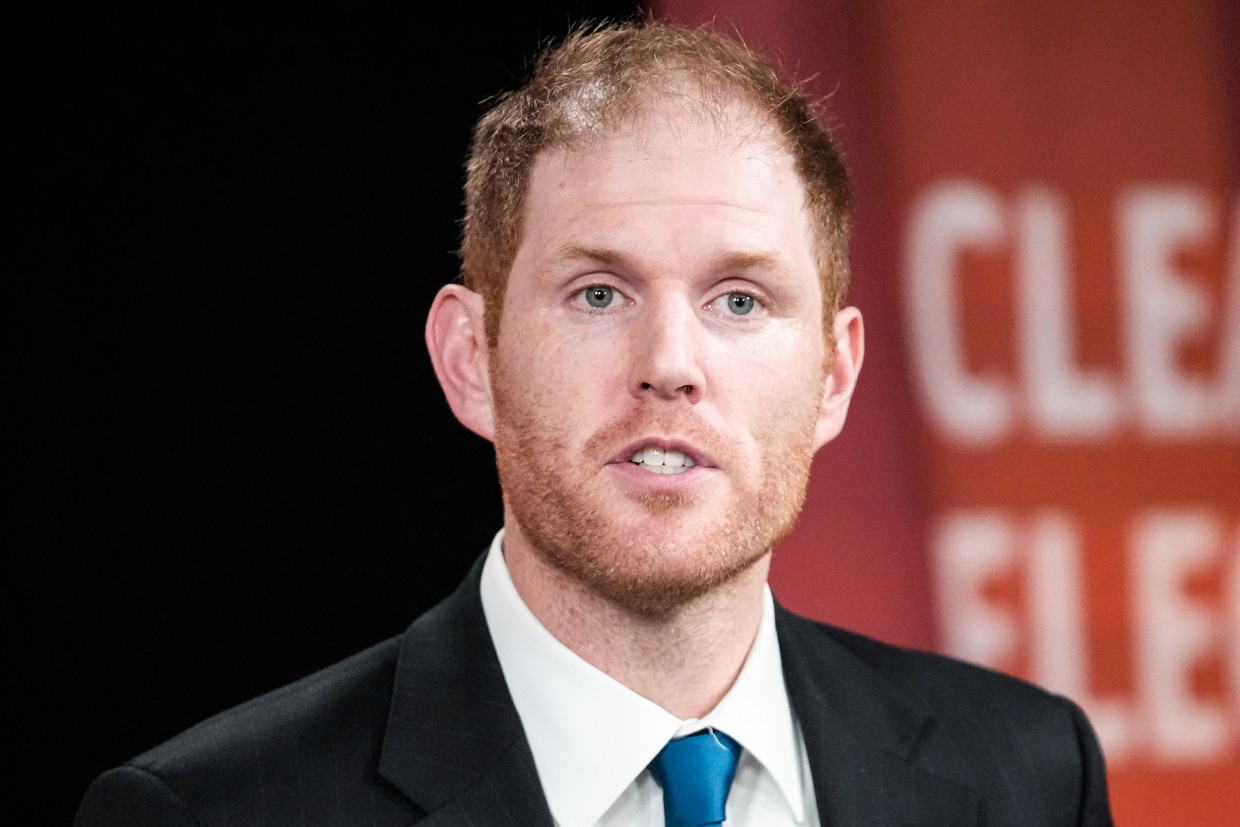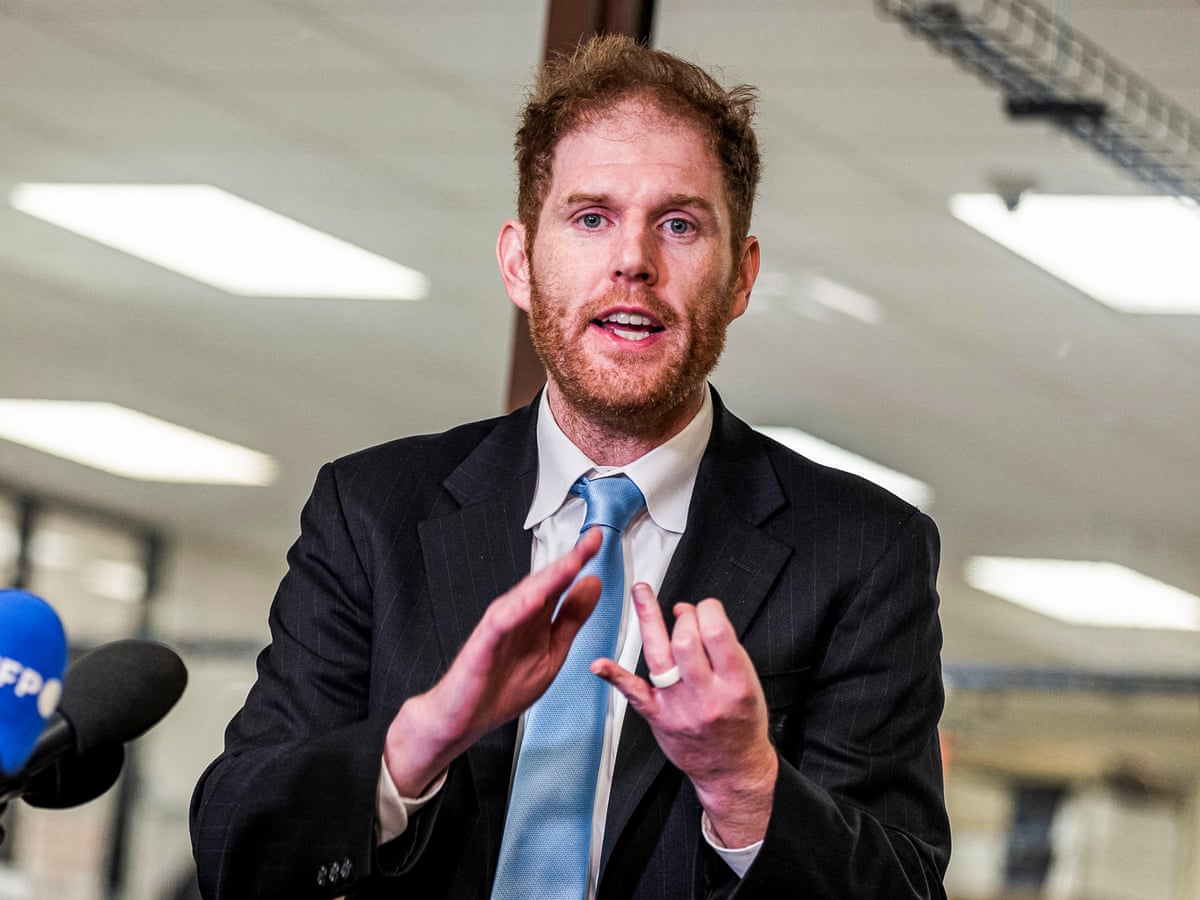In the world of powerful alliances and shifting loyalties, few stories are as poignant—and quietly tragic—as the unraveling of the once-tight bond between Stephen Richer and Steve Davis. At the center of this quiet emotional storm stands Elon Musk, the tech magnate whose ideas have reshaped industries but, in this instance, may have inadvertently reshaped lives.
Steve Davis, a relentless and loyal soldier in Musk’s empire, has been by the billionaire’s side for more than two decades. A quiet architect of Musk’s ambitions, Davis has moved through the corridors of SpaceX, The Boring Company, and now stands as a formidable force in the newly emergent Department of Government Efficiency (DOGE), a federal cost-cutting endeavor closely aligned with Musk’s vision for a leaner, more aggressive government apparatus.
In Washington, he operates not just as a bureaucratic strategist, but as a trusted agent executing Musk’s ideological preferences on a national scale.
But before the political spotlight and the DOGE interviews, Davis was just a brilliant, quirky engineer who moved to D.C. for SpaceX more than 15 years ago, and, alongside his eccentric professional life, he cultivated a vibrant personal world. He opened Mr. Yogato, a frozen yogurt bar that doubled as a neighborhood hangout.
![]()
He hosted game nights, led karaoke battles, and infused his environment with community energy. And throughout much of it, he was joined by Stephen Richer—a red-haired lawyer, karaoke partner, roommate, and confidant.
By all accounts, Davis and Richer were inseparable during those early years. Their friendship wasn’t simply social; it was symbiotic. Richer wasn’t just a witness to Davis’s rising star in Musk’s inner circle—he was a believer.
He spoke publicly in support of SpaceX and The Boring Company. When Richer chose to pivot his life and enter politics, Davis stood by him. It was an unusual twist—a tech lieutenant backing a Republican election official—but their friendship transcended ideology. That is, until ideology became impossible to ignore.
Richer’s political journey took him to Arizona, where he became the recorder for Maricopa County, overseeing elections in one of the most scrutinized regions of the United States. His job placed him at the epicenter of America’s fiercest political storm: the battle over election integrity, misinformation, and the legacy of the 2020 election.

Richer’s stance was clear—he refused to lend credence to baseless claims of voter fraud. He became a target of conspiracy theorists and far-right provocateurs. And then came the most unexpected blow of all—Elon Musk himself, the man his best friend had followed loyally for decades, began to amplify the very misinformation Richer was fighting.
In April, Musk posted that hundreds of thousands of undocumented immigrants had registered to vote in Arizona. Richer, as a legal official and a Republican who believed in the rule of law, found himself caught in an impossible position. His own friend’s boss—arguably one of the most powerful voices on Earth—was feeding the chaos he was trying to contain.
At first, Richer tried to hold the line diplomatically. He acknowledged Musk’s brilliance. He celebrated the sight of rocket launches in the Arizona sky. He spoke of his admiration for Tesla, for Starlink, for the boldness that had built a new space age.
“We loved the recent rocket launch,” he wrote, even as he rebutted Musk’s claims with careful facts. He didn’t want to torch the bridge that had been built over years of karaoke, frozen yogurt, and political support. But that bridge had already begun to smolder.

As the months passed and Musk doubled down—accusing Arizona of refusing to remove undocumented voters from the rolls in a post that was viewed 38 million times—Richer’s tone began to change. His admiration gave way to exhaustion.
He pushed back more assertively. He began to name the harm. He pointed out the inaccuracy of Musk’s claims, but noted bitterly that the billionaire never corrected them.
His own political career suffered. Denying that the election had been stolen from Donald Trump cost Richer his Republican primary in 2023. The party that once championed his integrity no longer had room for nuance. He was displaced, even as he refused to compromise his convictions.
And while Richer faded from political office, Davis rose further. In a televised interview with Fox News, he took a seat directly beside Elon Musk, now publicly leading the Department of Government Efficiency. No longer the low-profile engineer, Davis now stood next to the man who had fractured his friend’s career and credibility. He didn’t comment on Richer. He didn’t reach out publicly.
The silence was louder than any condemnation.
Richer, now a senior fellow at the Harvard Kennedy School, has continued to speak out—not only against election misinformation, but against the creeping erosion of democratic institutions. On social media, he has criticized Musk’s role in fueling distrust, mocking DOGE’s abrupt personnel cuts and warning about the centralization of power.
In doing so, he has positioned himself not just as a political figure, but as a former believer reckoning with betrayal.
This wasn’t just a political rift—it was a personal rupture. A friendship born of shared meals and shared dreams had crumbled under the weight of a new digital reality. Musk didn’t just insert himself into a national debate—he inadvertently tore apart a human connection that had weathered cities, careers, and ideology.
There’s a haunting sadness to this story. Not because two powerful men disagreed. Not even because one lost his job and the other rose to power.
But because the real cost wasn’t measured in votes or dollars—it was the quiet collapse of trust between two men who had once believed in each other, only to find themselves on opposite sides of a tidal wave they couldn’t stop.

Richer never condemned Davis. He never accused him of betrayal. But in each statement, in each clarification, there was an unspoken grief. A recognition that their paths had irrevocably diverged—not by accident, but because of the very man who had brought them both together.
And Davis, sitting silently beside Musk on national television, offered no defense. Perhaps there was none to offer. Perhaps in the war for efficiency, clarity, and power, friendship had simply become a casualty too small to mourn.
But it mattered.
It mattered to Richer, who risked his career to speak truth.
It mattered to Davis, who once shared frozen yogurt and flash mobs with the man who now calls out his agency on social media.
And it matters to the rest of us, because their story is not isolated. It is the story of what happens when misinformation becomes policy, when loyalty becomes silence, and when friendship becomes too fragile to survive the storm.
A beautiful friendship, torn apart by Elon Musk.